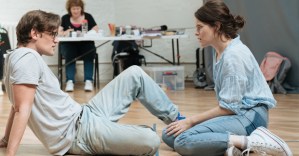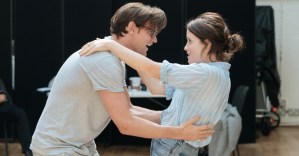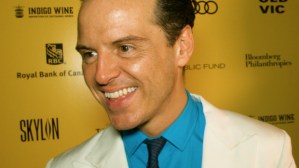Review: Lungs (Old Vic)
Matt Smith and Claire Foy star in a new revival of Duncan Macmillan’s play
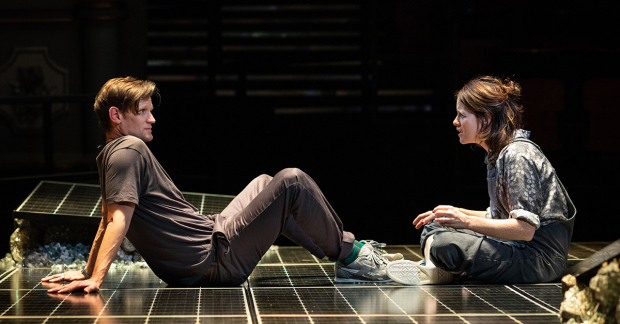
© Helen Maybanks
There couldn't be a more timely play than Lungs, yet it was written ten years ago. Duncan Macmillan's two-hander is a clever, darting thing, and in the hands of Claire Foy and Matt Smith – reunited for the first time since they played the Queen and Prince Philip in The Crown – it is a bit of a wonder.
Its smartness resides in the fact that it takes a big, unwieldy subject – climate change and its effect on people's decision-making as they try to consider the future of the planet – and boils it into a domestic situation that everyone can recognise. It opens with an argument, a conversation – "that you've decided to start now. In Ikea." – between a man and a woman about whether they should have a baby.
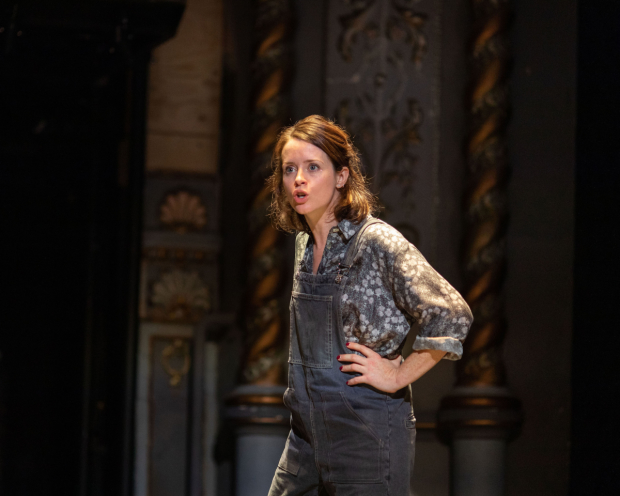
The very raising of the subject causes Foy's character (both are unnamed) to panic. She can't stop talking, not only about her feelings, but about the world a child would come into, and the burden it would place on already limited and strained resources. The 10,000 tonnes of CO2 the child would consume for example. "I'd be giving birth to the Eiffel Tower."
Her whirring words are wonderfully funny, as well as truthful. At first it seems as if she is using the climate argument as a means of staving off her feelings about having a child at all. But gradually they gain weight. The theme at the heart of the play is whether we – the affluent yet responsible– recycling our rubbish, planting trees, watching the news and subtitled films, should or should not have children. What does it mean to be a good person in this context? And what does it mean, further, for the others – for the people who may not share our values or our luck?
There are some difficult and troubling arguments raised, but as they take hold, we also watch the evolving relationship between Foy and Smith: their sudden decision to go clubbing because they've stopped enjoying themselves, the procreation sex interrupted when Foy accuses Smith's character of having on "his porn face"; the moment when they read the pregnancy test.
The sheer difficulty of having a child, the strains it puts on a relationship, all the unsaid and unsayable thoughts the idea suddenly makes say-able, are beautifully captured. Macmillan's writing is fluid and fluent, moving swiftly from scene to scene without pause. It's matched by Matthew Warchus's unobtrusively sharp direction, which uses Rob Howell's in-the-round set of solar panels with great flair, staging the conversations like a dance, measuring the distances between the characters as they go through the different stages of their lives and their emotions.
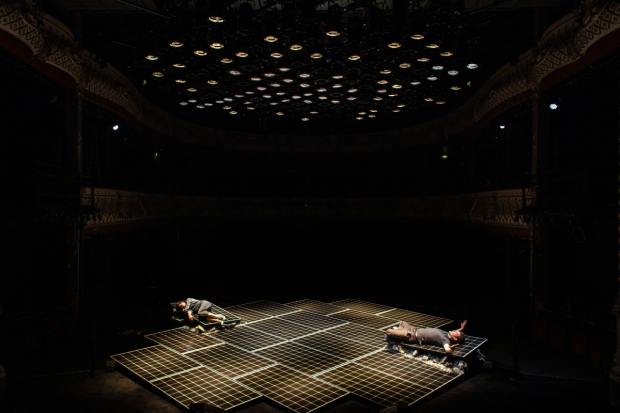
© Helen Maybanks
Macmillan writes with deep empathy for women characters and Foy makes the most of every beat in her rich lines, finding humour, warmth and pathos as well as capturing the grating qualities that make her character hard, sometimes, to like. The moment when she talks about the way that she had always imagined herself with a baby bump but that her imaginary partner was in the background and a bit blurry is just one of many that has the ring of truth about it.
Foy's openness and expressive ability to communicate pain is perfectly matched by Smith. On TV he always seems a hyper-active actor, but his quality on stage is his ability to be still and to listen. He does this over and over again, all kinds of responses passing over his face: love, joy, bafflement, suppressed rage. He delivers one monologue of doom while lying on his back, with only his hands shaping the words in the air; it's a masterly performance.
The play doesn't really need its ending, an over-extended look at an apocalyptic future. It makes its points so well en route, that it doesn't really need this underlining. Its ability to seem light while gazing at the dark, is a real breath of fresh air.


